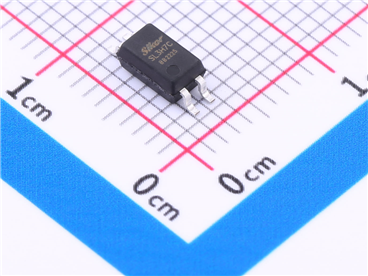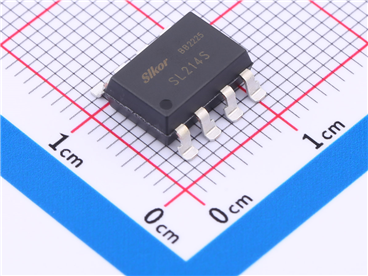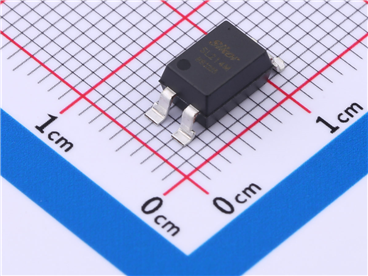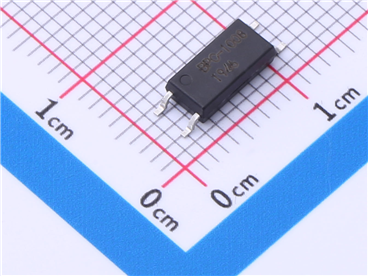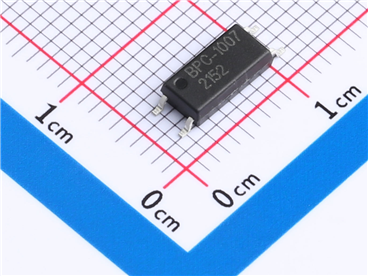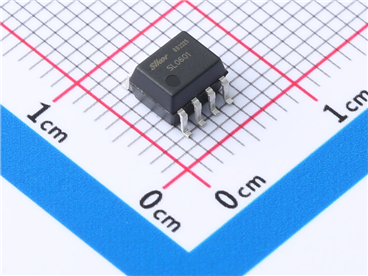From Celestial AI to Taalas, these startups are all attempting to challenge Nvidia.
In the past couple of years, as the world recognized the disruptive potential of generative artificial intelligence and the powerful chips enabling this technology, the semiconductor industry has garnered renewed attention. While Nvidia has been the primary beneficiary of this interest, various startups are seeking to challenge this AI chip giant or explore other potentially disruptive areas.
Although semiconductor startups still face significant risks, often bearing much higher costs compared to early-stage software companies, they stand to benefit from this year's anticipated industry growth of 20%, driven in part by robust demand for AI chips.
This creates opportunities for AI chip startups like Cerebras Systems, Hailo, and Kneron to capitalize on the anticipated expenditure growth forecasted by research firm IDC in December. Other semiconductor startups aiming to disrupt AI computing chip designs include Celestial AI, Eliyan, Rivos, and Tenstorrent.
Here are CRN's top 10 hottest semiconductor startups of 2024, including the aforementioned startups along with MetisX, SiMa.ai, and Taalas.
Celestial AI
David Lazovsky,Founder and CEO
Celestial AI has stated that its photonic structure optical interconnect technology overcomes latency and bandwidth bottlenecks, paving the way for advancements in artificial intelligence computing.
Based in Santa Clara, California, the startup announced in March this year that it had secured a significantly oversubscribed Series C funding of $175 million. The round was led by the U.S. Innovation Technology Fund, with participation from several investors including AMD's venture capital arm, Samsung, and Porsche SE, the holding company of Volkswagen Group.
In the same month, the silicon photonics startup noted that it is currently designing photonic structure optical chips as part of the initial phase of technology adoption. According to Celestial AI, integrating optical chips into multi-chip packages is increasingly becoming standard for high-performance processors, enabling a 25-fold increase in off-package bandwidth compared to "other state-of-the-art technologies."
Cerebras Systems
Andrew Feldman,Co-Founder and CEO
Cerebras Systems is leveraging its Wafer Scale Engine chip to challenge Nvidia's dominant position in AI computing, boasting outstanding performance per watt and "unprecedented scalability."
Based in Sunnyvale, California, the startup unveiled its third-generation chip, the Wafer Scale Engine 3, in March this year. It claims the new chip offers twice the performance of its predecessor at the same power consumption and price. WSE-3 is composed of 400 trillion transistors using [敏感词]'s 5-nanometer process, integrating 900,000 AI cores and 44 GB of on-chip SRAM, achieving 1.25 exaflops of 16-bit floating-point performance.
Other milestones for the company this year include strategic collaborations with healthcare giant Mayo Clinic for developing large-scale multimodal language models to enhance patient treatment outcomes and diagnostics, a longstanding partnership with AI startup Aleph Alpha to build secure sovereign AI solutions, and laying the groundwork for the Condor Galaxy 3 supercomputer for Abu Dhabi-based technology holding group G42.
Eliyan
Ramin Farjadrad,Co-Founder and CEO
Eliyan aims to overcome inter-chip bandwidth barriers with its NuLink PHY interconnect technology, enabling chip designers to build more powerful chip-based processors.
The Santa Clara, California-based startup announced in March the completion of a $60 million financing round, led by Samsung Catalyst and Tiger Global Management, with participation from Intel and SK Hynix Ventures among other investors.
Earlier this year, Eliyan introduced what it described as the "highest performance" solution at the physical layer for connecting multiple chips within a single-chip architecture. It utilizes [敏感词]'s 3-nanometer manufacturing process, achieving speeds of up to 64 Gbps per lane.
Hailo
Orr Danon,Co-Founder and CEO
Hailo is accelerating edge AI workloads by adopting chips that lead in cost and power efficiency, positioning itself in competition with Nvidia.
The Tel Aviv-based startup announced in April that it raised $120 million from investors as an extension of its Series C funding round, alongside the launch of the new Hailo-10 accelerator. This accelerator is designed to deliver "maximum GenAI performance with minimal power consumption" for devices like personal computers and automotive infotainment systems.
For instance, Hailo claims the Hailo-10 can run the Llama 2 model with 7 billion parameters at speeds of up to 10 tokens per second, consuming just 5 watts of power. Moreover, the chip can process images with the Stable Diffusion 2.1 model within 5 seconds using the same power range.
Kneron
Albert Liu, founder and CEO
Kneron aims to weaken Nvidia's influence with AI chips designed to reduce server costs for enterprises and lower the price and energy consumption of PCs in AI generation.
The San Diego-based startup announced in June the launch of its second-generation "Edge GPT" server, KNEO 330, which is touted to cut AI costs for small businesses by 30%-40%. The server can perform 480 trillion operations per second (TOPS), supporting up to 8 connections simultaneously, and enhances generation accuracy for large language models and retrieval. It rivals cloud solutions in capability.
Kneron has raised $190 million from investors including Qualcomm and Foxconn. The company also unveiled its third-generation Neural Processing Unit (NPU), KL830, designed to support low-cost AI PCs and IoT applications enabled with AI.
MetisX
Jim Kim, Co-Founder and CEO
MetisX aims to enhance data centers with a more intelligent, faster, and cost-effective approach by developing smart memory systems based on Compute Express Link (CXL) technology.
The Seoul-based startup announced in May that it secured $44 million in Series A funding from multiple investors. It plans to establish operations in the United States and launch chips targeting large-scale customers next year.
The company has completed prototypes for large-scale data processing applications such as vector databases, big data analytics, and DNA analysis. According to reports, these prototypes deliver twice the performance of traditional server CPUs.
Rivos
Puneet Kumar, Co-Founder and CEO
Rivos aims to disrupt the data center market by integrating high-performance RISC-V CPUs with data parallel accelerators for data analytics and AI inference workloads.
The California-based startup, founded by former engineers from Google, Apple, and Intel, announced in April that it closed an oversubscribed Series A-3 funding round, raising over $250 million from investors including Intel and Dell Technologies' venture arms.
In February, following a settlement with Apple over litigation, the company secured funding and disclosed plans to launch its inaugural silicon product and expand its team. Apple had accused the startup of poaching dozens of engineers and stealing trade secrets, while Rivos countersued alleging unfair competition.
SiMa.ai
Krishna Rangasayee, Founder and CEO
SiMa.ai aims to capture market share from Nvidia in edge AI workloads with its powerful and efficient chips, capable of handling a variety of patterns on a software-centric platform.
The startup, headquartered in San Jose, California, announced in April that it raised $70 million from investors, including Dell Technologies' venture arm and Lip-Bu Tan, Chairman of Cadence Design Systems.
The company stated it will use the funds to meet demand for its first-generation Machine Learning System-on-Chip (MLSoC), designed specifically for computer vision, and accelerate development of its second-generation MLSoC, supporting multi-modal AI workloads including speech, audio, text, and image processing.
Tenstorrent
Jim Keller,CEO
Tenstorrent is pioneering a new path in AI computing chip design by combining a business model of selling dedicated processors with licensing chip technology to others.
The Toronto-based startup announced in February a "multi-level collaboration agreement" with Japan's Advanced Semiconductor Technology Center, aiming to utilize Tenstorrent's RISC-V and small chip technologies to develop its 2-nanometer edge AI accelerator. Tenstorrent will also serve as the co-design partner for this chip.
According to The Information's June report, the startup raised $100 million in funding last year led by Hyundai Motor Group and Samsung Catalyst Fund, and is now raising at least $300 million in a new funding round led by Samsung, valuing Tenstorrent at $2 billion. Reports suggest negotiations are underway with another major Korean company, LG Electronics, regarding this funding round.
Taalas
Ljubisa Bajic,Founder and CEO
Taalas is aiming to disrupt Nvidia's general GPU strategy by designing accelerator chips that directly implement entire AI models, potentially reducing costs by up to 1,000 times.
The Toronto-based startup, led by Tenstorrent co-founder Llubisa Bajic, announced in March that it has raised $50 million in funding and revealed its plans to create an automated workflow that hardwires all types of deep learning models into the chip.
According to Taalas, this design approach allows them to develop a chip containing entire large-scale AI models "without the need for external memory." The startup claims that this chip design is expected to offer higher performance than small-scale GPU data centers, paving the way for reducing AI computing costs by over 1,000 times.
The company plans to tape out its first large-scale language model chip in the third quarter and aims to launch it to customers in the first quarter of next year.
